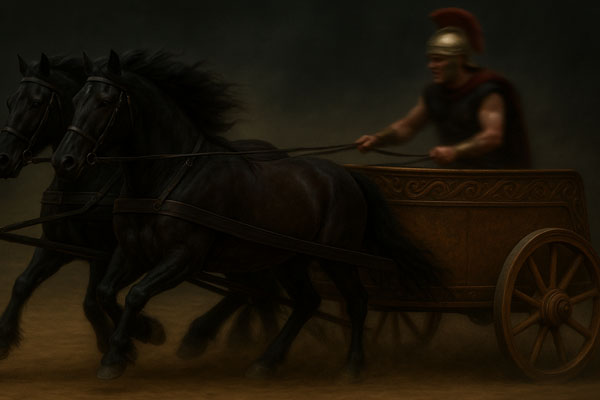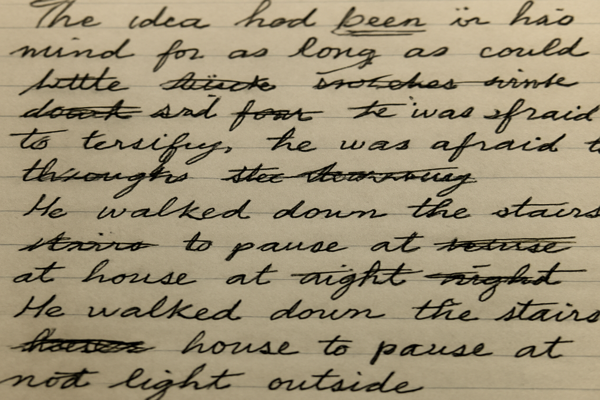When I tell people my dad once declared himself Jesus Christ at 3 AM while wearing nothing but tighty-whities, they usually think I'm joking. When I explain he was serious—and that this was just a Tuesday in the Murray household—they get that look. You know the one. It's equal parts sympathy, horror, and relief that their own family suddenly seems normal by comparison.
Growing up with a bipolar parent in small-town Kansas taught me lessons they don't cover in school. Sure, I learned the state capitals and how to diagram sentences, but I also learned how to gauge someone's mental state by the way they organized the garage at 2 AM, and that love and fear can exist in the same moment, holding hands like reluctant dance partners.
Here are five things that growing up with my bipolar dad taught me—lessons earned through equal parts laughter, tears, and that particular brand of dark humor that develops when your childhood stories require disclaimers.
1. Humor Is Both Shield and Sword
When Dad bought a chariot for twenty dollars at an estate sale—yes, an actual chariot, like something rejected from Ben-Hur—Mom was mortified. Our neighbors already thought we were odd; now we were the family with a Roman battle vehicle parked in the driveway.
But here's what I learned: when Dad hitched our horses to that death trap and took us kids for rides through downtown Colby, bouncing over brick streets while onlookers stared, we had two choices. We could die of embarrassment, or we could laugh at the absolute absurdity of it all.
We chose laughter. Even when my brother Matt got his shoelace caught in the wheel and was temporarily turned into a human spoke. Even when the entire downtown witnessed our disaster. Especially then.
"Humor became our translator, turning trauma into stories, disasters into adventures. It didn't fix anything—Matt still had wheel-shaped bruises, and we were still the weird family with the chariot—but it made it bearable."
Sometimes that's all you can ask for.
2. Children Become Emotional Weather Forecasters
By age twelve, I could predict my dad's manic episodes better than the Weather Channel could predict tornadoes. The signs were all there if you knew how to read them:
- The garage reorganization at 3 AM (threat level: yellow)
- Drawing crosses with saliva on bathroom mirrors (threat level: orange)
- Declaring the mailman a government spy (threat level: red)
- Building a "bunker" in the basement and stockpiling canned goods (threat level: evacuate immediately)
My siblings and I developed our own silent communication system—a glance that meant "Dad's ramping up," a gesture that meant "get Matt out of here," a nod that meant "I'll handle Mom, you watch Dad."
We became tiny emotional meteorologists, constantly scanning the horizon for storm clouds. It's a skill that's served me well in life, though it's also meant I sometimes see storms where there are only clouds. Hypervigilance: great for survival, terrible for relaxation.
3. Love Doesn't Always Look Like Hallmark Cards
When I was ten, Dad took me on a winter horseback ride that ended with me falling through ice into a creek. As I sat there, soaked and freezing, teeth chattering like castanets, Dad jumped in after me without hesitation. He hauled me out, wrapped his arms around me, and spent the entire walk home telling the world's worst jokes to keep my spirits up.
"Why don't mountains ever get cold? Because they wear snowcaps!"
This was the same man who, in a manic rage, would later take a baseball bat to my mother while we kids watched in horror. The same man who had an affair and tried to convince us it was "educational." The same man who once threw a chair through a bank window.
Love in our family came with footnotes and asterisks. It meant knowing someone could be both protector and threat, often in the same day. It meant learning that mental illness doesn't cancel out love, but it does complicate it. Every "I love you" carried an unspoken "even though" or "in spite of."
It took me years to understand that love could exist without conditions, without the constant underlying current of potential danger. Some days, I'm still learning.
4. Survival Creates Different Kinds of Strength
Each of us Murray kids adapted differently to the chaos:
Matt became unshakeable, the kind of person who faces confrontation head-on because he learned early that the worst thing wasn't the fight itself but the helplessness of watching it happen.
Melissa became a warrior, but she also learned that love meant being willing to take the hit. I'll never forget the night she threw herself on top of Mom to protect her from Dad's rage. She was ten years old, sixty pounds soaking wet, and braver than I'll ever be.
Me? I became the observer, the keeper of stories, the one who stands at the edges of life taking notes rather than participating. Even now, I can describe that night in perfect detail—the sound of the plastic bat, the color of Mom's dress, the way Melissa's hair fell across Mom's shoulder. Ask me how I felt about it, though, and I'll struggle to find words that aren't deflections.
"We all survived, but we survived differently. And maybe that's the point—there's no one right way to get through trauma. You just find your way and hope it doesn't cost you too much of yourself in the process."
5. Some Things Break But Don't Shatter
Our family photo albums are full of pictures that require explanation. There's us with our horses on a flatbed trailer held together with rope and optimism. There's Matt in dance shoes he wore for wrestling because Dad thought they were "basically the same as wrestling shoes." There's our pontoon boat adventure that ended with us lost on a lake during a lightning storm.
By all logic, our family should have shattered completely. The mental illness, the violence, the affair, the public humiliations—any one of these things could have been the final straw. But somehow, against all odds and probably good sense, we held together.
Not perfectly. We're held together with determination and duty rather than trust. We flinch at certain names, carry grudges like heirlooms, and sometimes love each other more out of habit than choice. But we're still here. Still standing. Still telling stories that make people say, "That can't be true."
But it is true. All of it. The chariot rides through downtown. The horses transported on a flatbed trailer. The time Dad emerged from a creek covered in mud, convinced the FBI was chasing him. The night we slept in a pile on my sister's floor, not because we were afraid of monsters under the bed, but because we were afraid our family might shatter completely.
The thing about growing up with a bipolar parent is that it teaches you life isn't divided into good and bad, sick and well, love and fear. It's all mixed together like ingredients in a cake you didn't ask to bake but have to eat anyway.
These days, when people ask me about my childhood, I tell them it was "interesting." If they press, I might share the chariot story or the one about the suitcase that took itself on a highway adventure. I've learned to gauge how much truth people can handle, serving it in small doses with plenty of humor to help it go down.
But here's what I really learned: We're all just trying to stay in the saddle, even when life hands us aqua socks instead of proper riding boots. Sometimes you fall. Sometimes your sister has to shield your mom with her tiny body. Sometimes your dad thinks he's Jesus.
And sometimes, somehow, you survive it all and live to write about it.
Even if you're still not sure whether to laugh or cry.
Even if the answer is usually both.



